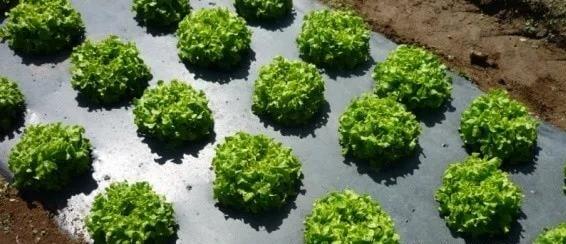The Food and Agriculture Organization of the United Nations (FAO) has released a report assessing the sustainability of agricultural plastic products, which recommends replacing non-biodegradable conventional polymers with biodegradable bio-based polymers.
We recognize the environmental benefits of these bioplastic products. Bio-based and soil biodegradable mulch can help reduce dependence on fossil carbon sources by using renewable carbon and play an important role in reducing residual plastic pollution in the soil, with a significant impact on agricultural productivity," said François de Bie, president of European Bioplastics (EUBP).
The FAO study focused on a range of agricultural plastic products used in different value chains. The qualitative risk assessment accompanying the study analyzed 13 specific agricultural products. Importantly, for six of the 13 products evaluated, biodegradable bio-based plastics were recommended as the preferred alternative to traditional plastic materials. The list of products included mulch, fishing gear, polymer-coated fertilizers, tree guards and shelters, plant support ropes, and pesticide-impregnated fruit protection bags.

Mulch films account for the second largest share of plastic films used in agriculture. Made from soil biodegradable plastics, these films offer significant benefits in a situation where recycling, recovery and reuse of conventional plastics is a major problem. They are specifically designed to biodegrade effectively in situ and can therefore be incorporated into the soil after harvest. In contrast, particularly thin, non-biodegradable mulches show inadequate collection, management and recycling, which can lead to significant levels of plastic pollution in the areas where they are used. Even when conventional mulches are removed from fields, they are often heavily contaminated with soil and plant residues, which inhibits the recycling process.
The FAO report also highlights the need to develop polymers that are biodegradable in the marine environment. "Although littering of any kind should be avoided, it is inevitable that a certain amount of fishing gear will be lost. Therefore, it is important to promote the adoption of marine biodegradable solutions," said the EUBP chairman. For used products contaminated with fish residues, such as fish collection bins, biopolymers may simplify the organic recycling process, according to FAO.

Commenting on the study, Hasso von Pogrell, Managing Director of EUBP, said: EUBP welcomes all studies, such as this one, that help to improve the understanding of the current data landscape. This is not something that the bioplastics industry alone can do, and in order to build a proper data pool, we need stronger political support. For the European market, the European Commission should lead efforts to promote and harmonize databases in order to get a more accurate picture of the real benefits that the use of bioplastics brings in terms of reducing pollution from conventional plastics."

